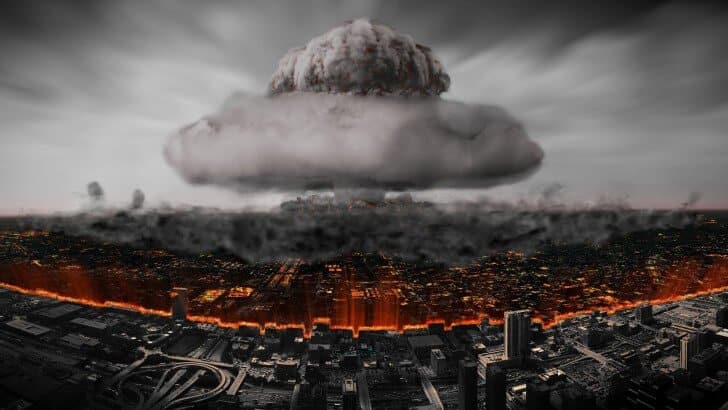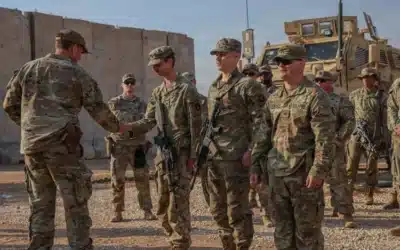A Congressional report on nuclear policy warned that Russia and China pose an existential threat to the US and action must be taken now to prepare for conflicts with the two superpowers. The commission called for Washington to prepare to fight simultaneous wars with Moscow in Europe and Beijing in Asia.
The Final Report of the Congressional Commission on the Strategic Posture of the United States is meant to give Capitol Hill influence over nuclear policy. The executive summary urged immediate action to respond to existential threats.
“The US faces a strategic challenge requiring urgent action. Given current threat trajectories, our nation will soon encounter a fundamentally different global setting than it has ever experienced: we will face a world where two nations possess nuclear arsenals on par with our own,” the authors claimed. “In addition, the risk of conflict with these two nuclear peers is increasing. It is an existential challenge for which the US is ill-prepared, unless its leaders make decisions now to adjust the US strategic posture.”
The US and Russia hold about 90% of the world’s nuclear weapons, which are roughly divided evenly between Moscow and Washington. Several Cold War-era agreements limited the White House’s and the Kremlin’s strategic weapons. However, over the past two decades, Washington withdrew from the Anti-Ballistic Missile (ABM) Treaty and the Intermediate-Range Nuclear Forces (INF) Treaty. Meanwhile, the last agreement, the New Start Treaty, is on life support. China’s strategic arsenal is significantly smaller than Russia’s or America’s nuclear weapons stockpiles.
Additionally, Washington’s relationships with Moscow and Beijing are near historic low points. The US has engaged in massive military buildups in Eastern Europe and in East Asia angering Russia and China. Under the Donald Trump and Joe Biden administrations, the US has significantly stepped up military support for Ukraine and Taiwan. Moscow and Beijing view those policies as threatening their national security.
The Congressional report concluded that war between the US and Russia/China is becoming more likely, and Washington should respond by building up its conventional and nuclear weapons.
“We arrive at these conclusions following a comprehensive year-long review of the threats America faces [as well as] its strategy and planned capabilities to address those threats. The evidence demonstrates that the US-led international order and the values it upholds are at risk from the Chinese and Russian authoritarian regimes. The risk of military conflict with those major powers has grown and carries the potential for nuclear war.” It continues, “Therefore, the Commission reached the unanimous, non-partisan conclusion that today’s strategic outlook requires an urgent national focus and a series of concerted actions not currently planned.”
The report’s authors add, “Those changes drive necessary adjustments to the posture of U.S. nuclear capabilities – in size and/or composition. A full spectrum of non-nuclear capabilities is also essential to the nation’s strategic posture.”
The US has passed record-breaking defense budgets over the past several years, that includes an over trillion dollar plan to upgrade the strategic weapons systems. Washington’s military budget is multiple times that of Russia or China.
Still, spending about a trillion dollars every year on wars and weapons is not sufficient according to the report because the US must be able to fight a multi-continent war against Russia in Europe and China in Asia. “The objectives of U.S. strategy must include effective deterrence and defeat of simultaneous Russian and Chinese aggression in Europe and Asia using conventional forces,” the report says.
Additionally, the Congressional Commission said Washington must be prepared to fight a nuclear war against Beijing and Moscow if the two-front war cannot be won with conventional weapons. “If the US and its Allies and partners do not field sufficient conventional forces to achieve this objective, US strategy would need to be altered to increase reliance on nuclear weapons to deter or counter opportunistic or collaborative aggression in the other theater,” the report argues.

































